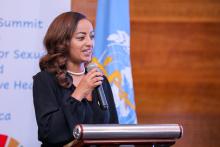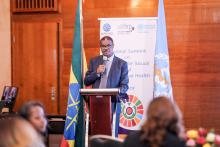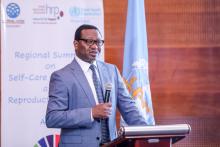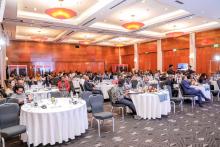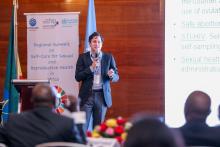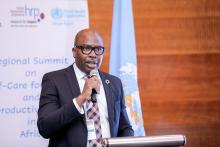WHO Africa Region Hosts Landmark Self-Care Summit in Addis Ababa, Ethiopia
Addis Ababa, Ethiopia – World Health Organization has convened a landmark African regional summit on self-care from November 27 to 29, 2024, in Ethiopia. This summit brings together policymakers, United Nations agencies, civil society organizations, donors, and implementing partners to advance self-care interventions aimed at improving access to quality sexual and reproductive health and rights (SRHR) services across WHO African region.
Self-care interventions for SRHR such as self-testing for pregnancy, self-administration of contraceptives, or self-management of medical abortion, empower individuals to take control of their health by increasing their autonomy and agency when offered within a supportive health system.
The African region is currently grappling with a high maternal mortality ratio and limited access to essential SRHR services, making the need for scaling up self-care interventions increasingly urgent. WHO’s consolidated guidelines on self-care provide evidence-based recommendations for medications, diagnostics, and devices that can be utilized independently or with a health or care worker’s supervision. The COVID-19 pandemic highlighted the necessity of encouraging self-care, as healthcare systems became overwhelmed, and movement restrictions hindered access to conventional facility-based care. Notably, self-care interventions have the potential to improve access to healthcare and support during both peacetime and crises.
WHO highlights that self-care complements, rather than substitutes, healthcare systems, empowering individuals with greater control over their health. The Self-Care Summit will tackle vital topics such as embedding self-care within national health policies, developing sustainable implementation strategies, and facilitating effective coordination among stakeholders to guarantee equitable access to these services, especially for underserved communities. The discussions will concentrate on applying WHO guidance to enhance national health systems, ensuring that self-care interventions are accessible, acceptable, and affordable.
Her Excellency Dr. Mekdes Daba, Minister for Health, Federal Republic of Ethiopia expressed her enthusiasm for Ethiopia hosting this summit, stating that "It is an honour and privilege for us as a country to host this significant summit on self-care for the WHO African Region. The government of Ethiopia recognizes self-care as a critical pathway to achieving universal health coverage and has made considerable progress in promoting self-care for sexual and reproductive health and rights including: the Development of RMNCAH Self-Care Guidelines to guide implementation; capacity-building trainings for program managers at national and subnational levels; the orientation of healthcare workers on self-care approaches and a pilot implementation of self-care in four regions—Oromia, Amhara, Somali, and Addis Ababa—with plans underway for full-scale rollout. This summit serves as a vital platform to launch a global initiative on self-care, including a global roadmap and call to action. It will strengthen self-care interventions for better health outcomes and bring us closer to the 2030 SDG targets."
Dr. Pascale Allotey, Director of Sexual and Reproductive Health and Research at the World Health Organization/UN's Special Programme of Research, Development and Research Training in Human Reproduction (HRP) further noted “This summit occurs at a crucial time as we work together to attain universal health coverage and guarantee that no one is left behind. Self-care is a transformative approach to overcoming barriers, whether geographic, economic, or social, that limit access to care. For marginalised groups, such as women, adolescents, and displaced individuals, self-care is not merely a new concept; it is a necessity. In a similar vein, Dr. Owen L. Kaluwa, the WHO representative in Ethiopia, highlighted the importance of self-care for participants, stating, "Self-care is an increasingly powerful tool to tackle the difficulties in obtaining affordable and quality healthcare.”
Finally, Dr. Adeniyi Aderoba, the Team Lead for Reproductive and Maternal Health at WHO's African Region, noted that the summit would shed light on self-care competency standards for healthcare workers, with the aim of improving self-care options and increasing their adoption in various countries. The agenda will focus on strategies to implement a unified call for self-care interventions related to sexual and reproductive health rights, as well as promoting universal health coverage across the African region as scheduled in the upcoming WHO Executive Board meeting in 2025. Moreover, the summit will act as a networking platform, fostering collaborations among stakeholders committed to advancing self-care initiatives throughout the region. This operationalization will serve as a rallying point to enhance self-care interventions, ultimately improving health and overall well-being.
ENDS
Tel: +251 911 671134
Email: yilmas [at] who.int (yilmas[at]who[dot]int)
Communication Consultant
carrf [at] who.int (carrf[at]who[dot]int) for
WHO African Region / WHO HQ requests




